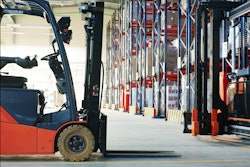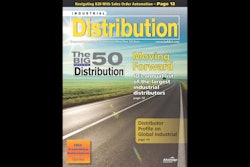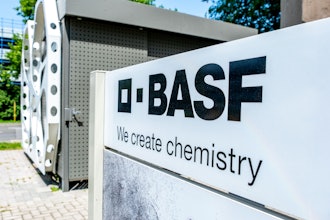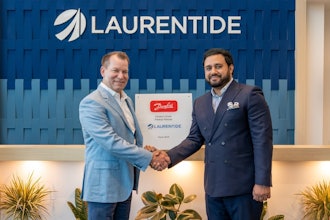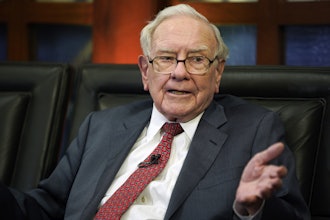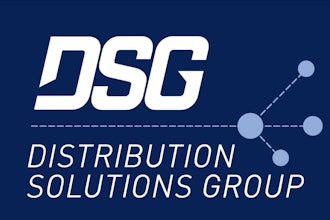In a time when so many industrial distributors are still trying to figure out if they should begin offering e-commerce, or even how to, Port Washington, NY-based Global Industrial can be seen as a pioneer.
Now a Systemax subsidiary, the industrial distributor was founded in 1949 as Global Equipment Company. As Systemax gathered computer supply companies throughout the 1980s and 1990s, the foundation was laid early for its technology-backed e-commerce platform, which it still benefits from today.
“That background helped us jump into this thing much faster than others,” says Ashar Mairaj, Global Industrial’s vice president of marketing. “We were primarily a technology company.”
Distributors are challenged increasingly more everyday to enhance their customer’s online buying experience. For Global Industrial, which has no brick-and-mortar retail stores, that element is even more crucial.
“There’s a lot of companies that have had stops and starts in e-commerce. These guys never waver,” Global Industrial VP of vendor relations Marty Rossman says about his management team. “It was always, ‘that’s our lead to market, let’s make it as user-friendly as possible.’ I would put our functionality on our site up against anyone, and I think our customers have come to realize that.”
But Global Industrial’s capabilities in e-commerce and general product procurement are already well-known to those in the industrial products market. What many don’t know — and what Global Industrial is striving to show — is that it’s much more than just a successful B2B distributor and e-marketplace. Global Industrial is also a value-added service provider, one in the midst of rolling out multiple new services to aid its ever-growing customer base.
Value-Added Investments
Global Industrial’s breadth of service it provides begins with customer service and the level of experience amongst the company’s sales force. More than 125 representatives have been with Global for at least five years, while nearly 100 of them have been with the at least 10 years. That tenure makes those reps very reliable from a customer-standpoint, a resource and an expert.
The other and more exciting venue Global Industrial is investing in is value-added services — several that have just started. In early June the company launched a pilot program for lockout/tagout training. The company also recently launched a pilot for a LED lighting service program, which will go live across the country by the end of September. Additionally, Global is in the late stages of forming an inventory management program, which will be pushed out nationally as well.
Beyond that, Global is piloting same-day delivery for orders placed within 50 miles of a distribution center. That service can be especially valuable to customers in urgent need of a product. They can search Global’s mobile website, place an order and get it that same day if they’re within that 50-mile radius. Another ongoing pilot is a program for its website that informs customers if they are within that 50-mile range, in which case Global will drop-ship their order to them that day.
“All those are happening together, and we’re making sure we position it to our customers so they see there’s a big financial impact for them,” Rossman says. “Those services provide benefits for safety and government regulations, but beyond that, there’s a big financial component.”
Another growing service channel for Global Industrial is its export business for international customers. While still relatively small, the channel has grown by double-digit percentages for several years. Global has bilingual sales reps dedicated to calling on and taking calls from international customers. The company is also implementing website capabilities for customers to place and ship small parcels internationally.
Those newer services are in addition to the company’s well-established online chat function for customers and live customer service reps available seven days a week.
“All our channels communicate those services,” Mairaj says. “Once you connect with Global Industrial, you have all those options and touchpoints at your service. Our call volume for inbound sales is a testament to that.”
Once all the new value-added services are in place, they will open an array of new touch points for Global Industrial to help and interact with its customers. The challenge the company is currently facing is how to communicate those services to current and potential customers and to change any perception that the company is just a procurer of products.
Global Industrial has doubled its salesforce in the last three years, growing its product line from 500,000 SKUs to more than 1.5 million in that same time. Still, Rossman says a lot of people’s perception of the company’s offering is narrow.
“We’re doing an aggressive job to get that message out, but we have a lot of runway with a lot of customers who don’t know what we can offer,” Rossman says.
To help spread the company’s message, Global held has been holding one-day regional customer shows throughout 2016. The first was in Buford, GA in March, followed by Robbinsville, NJ in May; Port Washington, NY on July 7; Pleasant Prairie, WI on Aug. 4; and Las Vegas, NV on Oct. 20.
Success In Trying Times
With end markets showing weakened demand across what seems like the entire industrial products sector, almost no industrial distributor is immune to its effects, and that includes Global Industrial. Even so, the company’s broad product selection has allowed it to achieve continued growth each quarter thus far since the industrial recession began in the summer of 2014. Systemax reported its 2016 second quarter fiscal performance on Aug. 2, showing that Global achieved its 26th consecutive quarter of year-over-year organic sales growth. Global had 2015 full year sales of $699 million, placing it No. 24 on Industrial Distribution’s 2016 Big 50 List. Through the first half of fiscal 2016, Global sales of $352.4 million were up 3.7 percent from a year earlier.
“I don’t think anyone escapes it because it’s so prevalent across the market,” Rossman says about the current economy for industrial products. “As far as overall profitability and capital investment, we’re still pretty lean and nimble. We’ve found a sweet spot in the middle where we’re able to give our customers and bring to market a pretty wide breadth of offerings through a multi-channel model, but we’ve really been tight with our investments.”
Part of that lean-ness is the fact that Global Industrial doesn’t have physical branches outside of its nine distribution centers — which encompass a combined 2.1 million square feet of inventory. That means considerably lower overhead costs of operation than its competitors that rely on sales from retail branches. Global Industrial also relies almost exclusively on an inside salesforce.
“There’s been all this market softness, but our growth has not only been in revenue,” Rossman says. “We’ve been growing our sales force, growing our SKUs, so it’s almost like — I don’t want to jinx it — we’re moving forward through it. I think our lean and nimbleness and the value we’re bringing has been working.”
A few years ago, Global Industrial did actually try out a brick-and-mortar branch. The company opened a retail store in Robbinsville, NJ in May of 2013, but shuttered it soon thereafter as customer traffic didn’t meet the investment. Though the trial wasn’t a success, it provided the company confirmation that physical retail isn’t in its wheelhouse.
“I would say it was an interesting experiment and market test,” Rossman says. “What I like about is we tested fast and learned fast. It’s just not the route for us.”
Hungry For More Acquisitions
While Systemax built itself through acquisitions in the past, Global Industrial hadn’t purchased another company until January of 2015, when it bought Milwaukee-based Plant Equipment Group (PEG) for $25 million from TAKKT America. PEG, a B2B direct marketer of MRO products, operates through a group of established selling brands including C&H Distributors, Products for Industry, Canada-based Avenue Supply and Mexico-based C&H Productos. PEG had 2013 sales of about $100 million in its last full fiscal year before the acquisition. The move was a significant financial success, as PEG helped Global achieve 25 percent growth in 2015 full-year revenue.
Just as important as the financial benefits, the PEG acquisition was a major success in terms of integration. Whereas company acquisitions are often a painstaking process for both parties, Global says the process was smooth, especially for it being its first time through it.
“Right from the get-go, the most important thing we decided was that the transition for the customer needs to be smooth. I’m really proud to say it was,” explains Mairaj. “It was a very phased approach. The technology transfer for ERP system was very smooth. Communication with customers was multi-faceted. Each part of transition was done in pieces so that the customer never felt it.”
With that transition being a success both from technical and cultural aspects, Global says the experience has given it a hunger for future acquisitions.
“It’s given us a lot of confidence,” says Natayla Mandel, Global’s vice president of corporate development and strategy. “After such a successful integration, there’s definitely appetite. It will be an integral part of our growth strategy going forward.”
Why Choose Global Industrial?
Global Industrial knows that many other large distributors sell the same commodity products that it does. But given its broad selection of product lines and product types, its nimbleness despite continued growth and its substantially enhanced service offering, the company feels it has found a sweet spot to thrive.
Global’s vice president of sales, Mike Haskins, says that the company is uniquely positioned in two major ways. First, Global doesn’t cater to one primary end market like many competitors. Secondly, it is more capable and offers more than distributors on the small end of the spectrum — while not being as financially burdened as those on the large end.
“When you choose to buy into that, all you need to do is look at our results,” Haskins says. “There’s a reason people are picking Global. I think our customers and the market are voting. I don’t see any other reason why our growth would be so significant over these past few years if the market wasn’t looking for someone who was offering that sort of unique approach.”





